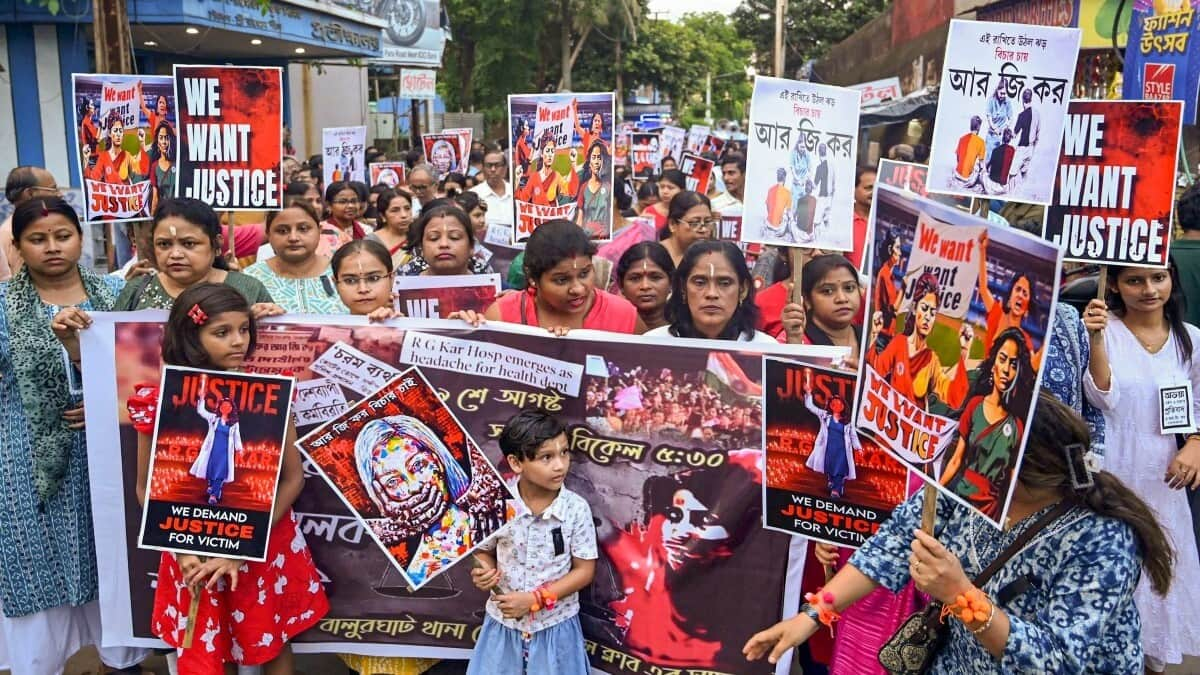
How polygraph test will help in Kolkata doctor rape-murder case
What's the story
The Central Bureau of Investigation (CBI) has received approval to administer a polygraph test on Sanjay Roy, the prime suspect in the horrific rape and murder case of a trainee doctor at Kolkata's RG Kar Medical College and Hospital. Following this development, the Calcutta High Court has deferred the next hearing until August 29. Roy, currently under CBI custody, underwent a psychoanalysis test conducted by the agency last Saturday.
Arrest details
Roy was arrested after victim's body was found
Roy was apprehended by Kolkata Police following the discovery of the 31-year-old victim's body in the seminar hall of the chest department at RG Kar Medical College and Hospital. The gruesome discovery was made between 3:00am and 5:00am on August 9, leading to his arrest just a day later. Now, with permission granted for a polygraph test, investigators hope to gain more insight into Roy's involvement in this heinous crime.
Test explained
What happens in a polygraph test
A polygraph test, often referred to as a lie detector test, is a scientific technique used to assess physiological responses that may indicate if an individual is lying or telling the truth. The process involves attaching four to six sensors to the subject, which record various signals on a moving paper strip or "polygraph." These signals include breathing rate, pulse rate, blood pressure, and perspiration levels.
Test procedure
Legal implications of polygraph test
Before starting a polygraph test, the examiner asks three or four simple questions to establish a baseline for the subject's responses. The actual questions are then posed, with each response being recorded. However, a 2010 Supreme Court ruling mandates that lie detector tests cannot be conducted without the accused's consent. Additionally, volunteers must have legal representation and be informed of the possible psychological, physical, and legal consequences of undergoing such tests.
Test results
Polygraph test results cannot be considered as 'confessions'
The Supreme Court has also ruled that forcibly administering narcotics tests and polygraphs violates Article 21 of the Constitution, which guarantees the right to life and liberty. This could be considered cruel, inhuman, and degrading treatment. While findings from these tests cannot be regarded as "confessions," any information or data obtained from a voluntary test may be accepted into evidence. However, the Indian Evidence Act of 1871 prohibits using these test results as admissible evidence in court proceedings.
Test accuracy
Polygraph test's accuracy
The estimated accuracy of the polygraph test stands at 87%, according to HowStuffWorks. However, there is also evidence suggesting that lie detector results can be manipulated. Despite these limitations, the polygraph test could prove useful in the ongoing investigation by providing insights into Roy's truthfulness. Investigators can use this test to verify if Roy's statements and alibis are consistent, and whether any discrepancies in his account indicate deception related to the crime.